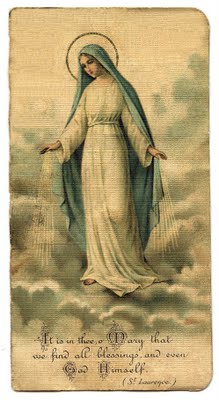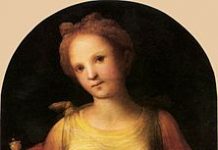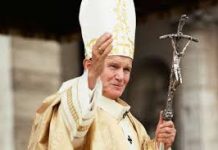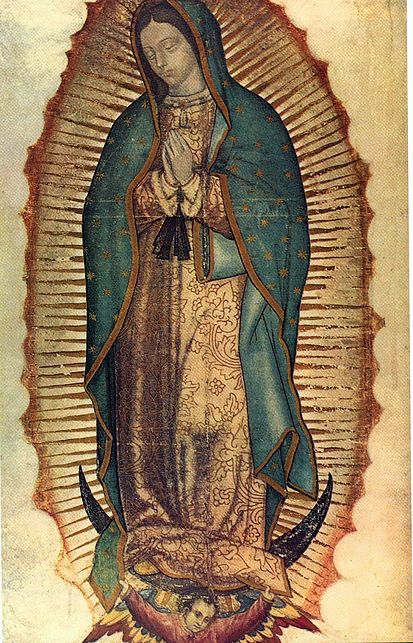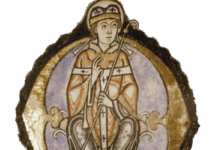In Dante’s epic poem, The Divine Comedy, the poet puts these words in the mouth of St. Bernard of Clairvaux as he gazes on the beauty of Our Lady in Paradise:
O Virgin Mother, daughter or thy Son,
Humble beyond all creatures and more exalted, Predestined turning point of God’s intention.
In Our Lady’s glorious Assumption which we celebrate today, God’s intention is made manifest.
Our Lady is the first of God’s children created and redeemed by the Precious Blood of Our Saviour for the glory of Heaven. She who is full grace from the moments of her Immaculate Conception received the fulfillment of grace’s promise in the glory of her bodily Assumption and Queenship. We contemplate her as the Gebirah – the Queen Mother whose queenship we will celebrate next Saturday.
In celebrating this glorious Feast, we also contemplate and celebrate our own destiny, provided we endeavour to persevere along the path of grace. This path is Christ Himself; the path of devout humility that Christ Himself became for us, -to quote St. Augustine. It is Our Lord Himself whom we encounter and listen to and receive especially in the celebration of the Holy Sacrifice of the Mass.
As we well know, the celebration of Holy Mass is both the school of faith and the feast of faith. The faith however, is nourished not only by doctrine; that is teaching or catechesis and preaching, but also by many other elements. If we consider the faith in the context of what are called the three great transcendentals – truth, goodness and beauty, we easily see that our growth in truth and goodness, essentially our growth in Christ’s likeness, is aided and made persuasive by the experience of beauty in the sacred rites of the Church.
Our ability to apprehend and understand the truths of our faith and our willingness to practise the virtues and perform the works of mercy are aided by the experience of beauty in all its forms in the sacred liturgy. The path of beauty (via pulchritudinis) is a privileged path or way of coming to know the truth of God. This is not a question of aesthetics. Pope Benedict recognised the importance of this form of proclamation. Being struck and overcome by the beauty of Christ is a more real, more profound knowledge than mere rational deduction. Of course we must not underrate the importance of theological reflection…but to move from here to disdain or reject the impact produced by the response of the heart in the encounter with beauty as a true form of knowledge would impoverish us and dry up our faith and our theology. We must rediscover this form of knowledge; it is a pressing need of our time. This is especially pressing because generally speaking, the liturgy has suffered the evacuation of mystery and we have made it all about us and very little about God. By God’s grace however, such is not the case here today.
Our celebration of Mass should make the mysteries more wondrous and the doctrines more luminous and this morning’s celebration of Low Mass with Organ is most certainly an experience transcended beauty as a true form of knowledge. I am grateful to Divine Providence in providing us with such a talented young man, our organist Adrian Ross. Let us enjoy these gifts now that we can for the days of persecution and exile are upon us.
After Mass, Adrian will play what is called a postlude, an opportunity to make a thanksgiving or simply to bask in the beauty of music inspired by the sacred rites of the Church.
Sacrifice of the Mass in the beauty of holiness and the holiness of beauty. ⧾

